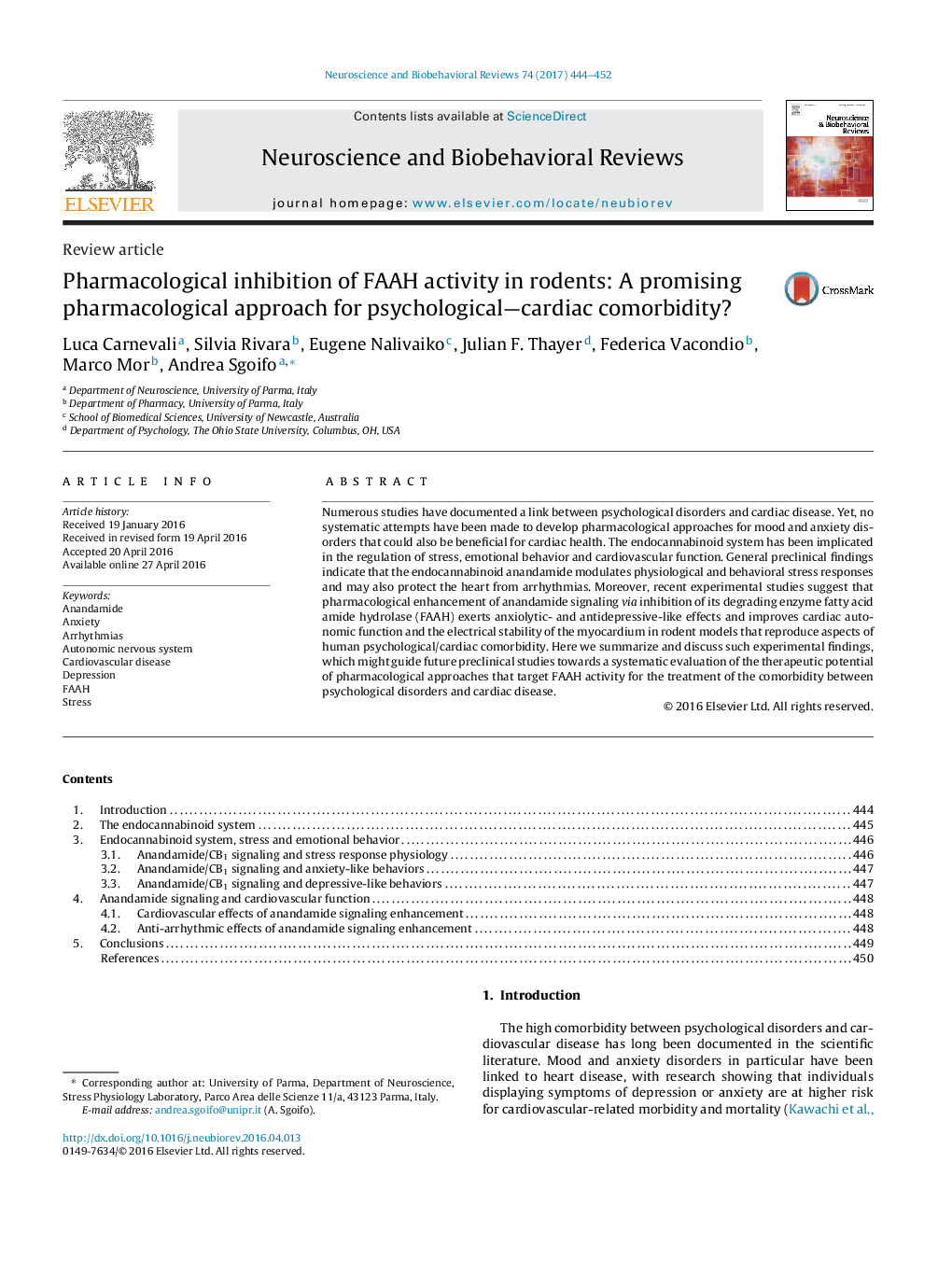| Article ID | Journal | Published Year | Pages | File Type |
|---|---|---|---|---|
| 5043631 | Neuroscience & Biobehavioral Reviews | 2017 | 9 Pages |
â¢Psychological/cardiac comorbidity is an important clinical issue.â¢The endocannabinoid anandamide has been implicated in the regulation of both emotional behavior and cardiac function.â¢Pharmacological enhancement of anandamide signaling exerts mood-enhancing and anxiolytic effects and cardioprotective action.
Numerous studies have documented a link between psychological disorders and cardiac disease. Yet, no systematic attempts have been made to develop pharmacological approaches for mood and anxiety disorders that could also be beneficial for cardiac health. The endocannabinoid system has been implicated in the regulation of stress, emotional behavior and cardiovascular function. General preclinical findings indicate that the endocannabinoid anandamide modulates physiological and behavioral stress responses and may also protect the heart from arrhythmias. Moreover, recent experimental studies suggest that pharmacological enhancement of anandamide signaling via inhibition of its degrading enzyme fatty acid amide hydrolase (FAAH) exerts anxiolytic- and antidepressive-like effects and improves cardiac autonomic function and the electrical stability of the myocardium in rodent models that reproduce aspects of human psychological/cardiac comorbidity. Here we summarize and discuss such experimental findings, which might guide future preclinical studies towards a systematic evaluation of the therapeutic potential of pharmacological approaches that target FAAH activity for the treatment of the comorbidity between psychological disorders and cardiac disease.
